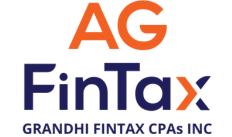No matter how well-prepared you are, tax time is nearly always stressful for small business owners.
Finding receipts, keeping track of all your expenses, listing out deductions—it’s a lot to manage, more so if you have employees that you should file additional paperwork for.
And while it’s probably impossible to get rid of all the anxiety associated with tax time, it is definitely possible to reduce it.
Here are our 4 tactics to make filing your small business taxes easier in 2021.
Start early and split your tax-related task list into chunks.
Rather than devoting an entire day to do everything from finding your documents to signing and sending off your tax return, it makes much more sense to list down all the related tasks and accomplish them one after the other. Do a little at a time.
This way, if you end up running into obstacles or issues that require additional time or professional assistance, you’ll still be ahead of the game.
Know what form you’ll need to file.
Small businesses file different forms based on the type of business they are, so it’s a good idea to research what you’ll need based on your business type.
- Sole proprietorships file Schedule C with Form 1040 (personal income tax return)
- Partnerships file Form 1065. You’ll also report your share of business income and losses on Schedule K-1
- S corporations file Form 1120S and
- C corporations file form 1120
Set aside an afternoon to gather all your tax-related documentation.
That would include, but not limited to:
- Tax-related mailings from the IRS. That would include any notices of overpayments, underpayments, incorrect information, need for updates, etc.
- Records of estimated tax payments made for the year.
- Receipts for expenses. If you use a business checking account or business credit card, that should be fairly easy, as you’ll have a clean record of all your expenses for the year in those one or two accounts. However, if you accidentally used a personal card for a business purchase, you’ll need to track that down.
- Mileage tracking information, if you drive for work and deduct mileage expenses.
- Any 1099-NECs you received.
- Payroll documentation if you have employees.
- Bank reconciliations.
- Your current year income statement.
- The prior year’s tax return.
- Home office expenses.
- Records of payments made to business service providers.
- Records of payments you made to freelancers or contractors.
Once you have all this information together in a folder, you can organize it by type and, if you like, put it aside until you’re ready to actually start the filing process.
Ideally, you won’t have much else to track down by the time you’ve gone through all your paperwork and digital records.
However, if there are tasks you need to complete, like figuring out your home office expenses or requesting additional documentation from business service providers, stay calm and do so at the earliest opportunity.
Find the right tax preparer.
Depending on the complexity of your tax situation, it may make sense to work with a tax preparer instead of trying to do it by yourself or using tax software.
One critical thing to remember: no matter who prepared your taxes, you are the one who’s responsible for what goes to the IRS. This means that if your preparer makes a mistake or careless oversight, you’re the one who will have to deal with the consequences—whether that means having to make additional payments, pay penalties, or even face an audit or legal consequences.
When looking for the right tax preparer for your situation, consider these things:
- Qualifications: Is the person qualified to help you with your small business taxes, and do they have the proper certifications, licenses, and credentials?
- Fees: Are the preparer’s fees clearly listed and explained? It’s best to avoid preparers who claim to get their clients bigger refunds than others, or who make other claims that are impossible to back up. Check with a few preparers before settling on one, as some will charge much more than others for the same service.
- E-filing: Make sure your preparer will e-file your tax return with the IRS, as that is the easiest and fastest way to file your return.
- Year-round service: You don’t want to work with someone who’s available from January through April 15, and out of commission for the rest of the year. Not only is that a strong red flag in terms of the preparer’s quality, but as a business owner, it’s likely you’ll have tax questions throughout the year. You want someone who will get to know you and your business, and with whom you can develop a long-term business relationship.
Filing your taxes can be made much easier with the right preparation and strategies. With organization on your part and a partnership with the right tax professional, you can file your taxes in a relaxed way while being assured that all is being done in a legal and ethical way.
If you’re looking for a firm that can help you manage your small business taxes, contact AG FinTax today!




